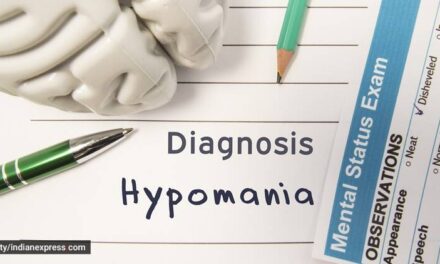Weight gain despite eating very little can be frustrating and confusing. You may feel like you’re doing everything right—cutting calories, skipping meals, or watching what you eat—but the scale keeps creeping up. The truth is, unexplained weight gain can stem from a variety of underlying causes beyond diet alone.
In this article, we’ll break down the most common (and sometimes overlooked) reasons why you may be gaining weight quickly even if your food intake is minimal, and what you can do about it.
1. Your Metabolism May Be Slowing Down
As we age, especially after 30, our basal metabolic rate (BMR)—the number of calories our body burns at rest—starts to decline. This means your body may be using fewer calories than before to function. If your activity levels haven’t increased, even eating a small amount could contribute to weight gain.
Contributing factors:
- Ageing
- Muscle loss
- Hormonal changes
2. Hormonal Imbalances
Hormones play a major role in how our body stores and burns fat. A sudden or unexplained weight gain may point to conditions such as:
- Hypothyroidism: An underactive thyroid reduces metabolism, leading to weight gain, fatigue, and sluggishness.
- PCOS (Polycystic Ovary Syndrome): A hormonal imbalance in women that can lead to insulin resistance and fat accumulation.
- Cushing’s Syndrome: A rare condition involving high cortisol levels which promotes fat storage, especially around the abdomen and face.
- Menopause: Fluctuating estrogen levels can lead to increased abdominal fat.
Tip: If you suspect a hormone-related issue, consult an endocrinologist or your GP for blood tests.
3. Water Retention (Edema)
Sometimes weight gain isn’t due to fat at all—it’s fluid buildup. This could be caused by:
- High sodium intake
- Dehydration (yes, not drinking enough water causes the body to hold onto it)
- Medications like corticosteroids, antidepressants, and blood pressure drugs
- Medical conditions like kidney or heart problems
Signs: Puffy face, swollen ankles, bloated stomach.
4. Hidden Calories and Poor Nutrient Quality
Even if you feel like you “barely eat,” it’s important to assess the type of food you’re eating. A diet high in processed foods, sugary drinks, or fast foods—even in small amounts—can spike insulin levels and promote fat storage.
Also, skipping meals often slows metabolism, making your body more likely to store fat instead of burning it.
Tip: Track your meals for a few days using an app like MyFitnessPal. You may be surprised where hidden calories come from (like sauces, drinks, or snacks).
5. Stress and Lack of Sleep
Both stress and poor sleep quality can lead to rapid weight gain due to elevated cortisol levels. Cortisol is the “stress hormone” that triggers cravings for sugary, fatty foods and tells your body to store fat—especially around the midsection.
Effects of poor sleep on weight:
- Disrupted hunger hormones (ghrelin and leptin)
- Increased appetite and reduced willpower
- Fatigue-induced inactivity
6. Gut Health Imbalance
Emerging studies show that the gut microbiome—the bacteria in your digestive system—can significantly impact weight. If your gut bacteria are out of balance, it can lead to:
- Slower digestion
- Increased inflammation
- Cravings and blood sugar spikes
Tip: Include fibre-rich foods, fermented foods (like yogurt, kimchi, or kefir), and consider a probiotic supplement after consulting a healthcare professional.
7. Medical Conditions or Medications
Certain medications and health conditions can lead to sudden weight gain, even if you’re eating less.
Common culprits include:
- Antidepressants and antipsychotics
- Diabetes medications
- Beta-blockers
- Birth control pills
Medical conditions like insulin resistance, diabetes, or liver issues can also lead to increased fat retention.
8. Lack of Physical Activity
Even if your food intake is minimal, a sedentary lifestyle means your body isn’t burning calories efficiently. Physical activity is key not just for weight loss but also for maintaining hormonal balance, gut health, and mental well-being.
Suggestion: Incorporate 20–30 minutes of moderate exercise (like brisk walking, yoga, or cycling) 4–5 days a week.
When Should You See a Doctor?
If you’re gaining weight rapidly despite eating very little, and it’s not related to lifestyle changes like decreased activity or new medication, it’s worth getting checked out.
See a healthcare provider if you notice:
- Sudden unexplained weight gain
- Fatigue or weakness
- Hair thinning
- Menstrual irregularities
- Constipation or dry skin
A simple blood panel can check for thyroid issues, hormonal imbalances, and other hidden concerns.
FAQs
Q1. Can stress alone cause weight gain?
Yes. Chronic stress elevates cortisol, which promotes belly fat and triggers cravings for high-calorie foods.
Q2. Why am I gaining weight but eating less and exercising?
Your metabolism might be adapting to a lower calorie intake, or underlying conditions like hormonal issues or stress may be interfering with fat burning.
Final Thoughts
Gaining weight while eating very little isn’t always about willpower or diet. It’s often your body’s way of signalling that something is off—be it hormonal, metabolic, or emotional. The key is to listen to your body, seek professional advice if needed, and make lifestyle changes that support long-term health.











